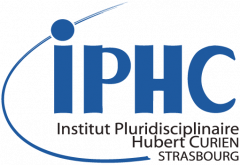IPHC-DEPE
23 rue Becquerel – BP 28
F-67087 Strasbourg
Tél : +33 3 88 10 69 31
E-mail: josefa.bleu@iphc.cnrs.fr
My research is at the interface of population ecology, evolutionary ecology, ecophysiology and ecotoxicology. I am interested in the effects of the biotic and abiotic environment on the life-history traits, the physiology and phenotype of the organisms, with a particular focus on the effects of the parental environment on their young (maternal effects or transgenerational effects).
Research
I study the effects of environmental conditions changing rapidly these past decades: the effects of climate change, urbanisation and chemical pollution. I also investigate evolutionary trade-offs between different life history traits thanks to individual-based long-term monitoring of wild populations.
I have 3 main current research projects:
- Urban ecology: Urbanization leads to natural habitat loss and fragmentation, pollution (heat island effect, light, noise and chemical pollutions) and affects biotic interactions (e.g. host-parasites interactions). We study the effects of these urban stressors on great tits (Parus major) with an integrative approach analysing the effects on the ecology, behaviour, morphology and physiology at the generational and intergenerational levels. We use a long-term monitoring of nestboxes populations and field experiments.
Main collaborations: Sylvie Massemin, Sophie Reichert (IPHC-DEPE) and the RT ParusNet (a French research network that brings together researchers studying the ecology and evolution of birds in the Paridae family).
Funding: project ANR Urbantit (2019-2024, PI Sylvie Massemin) and SEE-Life (2024-2029, PI Sylvie Massemin).
- Ecotoxicology and mixture of trace metal elements: Trace metal and metalloid elements (TME), including those called commonly ‘heavy metals’ (e.g. Pb, Cd), are naturally present in the environment in low concentrations but anthropogenic activities lead to massive releases of TME into the environment. The increase of TME concentrations can be problematic because some TME are clearly toxic (non-essential TME) and others are essential at low concentrations but toxic at high concentrations (such as Zn). In cities, there is typically a pollution of mixtures of several TME. Our aim is to study the physiological and transgenerational consequences of urban mixtures of TME in a passerine bird, zebra finches (Taeniopygia guttata). In particular, we study markers of stress (e.g. oxidative stress, corticosterone concentration), coloration, reproductive success and offspring development. We work in a controlled environment in the lab to investigate causal relationships.
Main collaborations: Sylvie Massemin (IPHC-DEPE), Anne Boos, Ludivine Valois, Martine Bergaentzlé (IPHC-DSA), Frédéric Angelier (CEBC).
Funding: project ANR Tramet (2021-2026, PI Josefa Bleu)
- Population ecology of the little owl: In the current context of global changes, a better understanding of the factors influencing vital parameters is important. In particular, farmland bird populations across Europe have been declining. The little owl (Athene noctua) is widespread in semi-open habitats throughout Europe, but is mainly associated with agricultural landscapes in Western and Central Europe. We aim to better understand the factors influencing the population dynamics of this species through a comparative approach of different populations usinglong-term surveys of individually marked individuals. We investigate the effects of climate variations, habitat quality and intrinsic factors (such as age, investment in reproduction) on survival and reproductive success. We also investigate physiological parameters that may be used as a measure of individual quality in this species.
Main collaborations: François Criscuolo (IPHC-DEPE), Marlène Gamelon (LBBE), the coordinators of the little owl populations monitoring in France (Bertrand Scaar, Athena 78, Muriel Lecomte, Olivier Hameau).
Keywords: Antioxidants, Climate change, Global changes, Life history traits evolution, Maternal effects, Oxidative stress, Phenotypic plasticity, Population ecology, Reproductive costs, Senescence, Trace metal elements, Trade-offs, Transgenerational effects, Urbanisation.
Teaching
I teach at the Faculty of Life Siences at the University of Strasbourg
- Bachelor Life Sciences specialty Cell biology and physiology of the organism: I mainly teach animal biology and population ecology
- Master Ecophysiology, Ecology & Ethology: I mainly teach evolutionary ecology, behavioural ecology and population ecology
Responsibilities
- Co-director of the second year of the Bachelor of Life Sciences (specialty “Biology”) (since 2024)
- Elected member of the academic council and the Research committee of the University of Strasbourg (2021-2025)
- Member of the animal welfare committee (“SBEA”) of the DEPE (since 2018)
- Associate editor for the Journal of Evolutionary Biology (since 2023)

